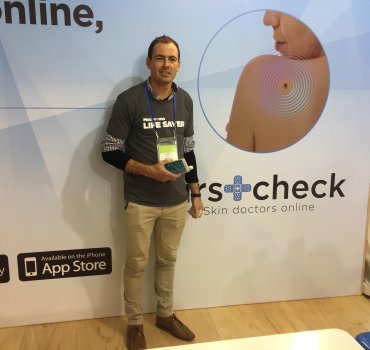

Hayden Laird from First Check was educating the Fieldays crowd about the app that may help to detect skin cancer.
Three cases of early-onset melanoma had been diagnosed before noon on the first day of Fieldays at the Health and Wellbeing centre last week.
That comes after 10 cases were diagnosed there last year, possibly saving lives in the process.
New Zealand has the world’s highest rate of melanoma, with seven people a day diagnosed with skin cancer, and an average of nearly 500 Kiwis dying from it every year.
Exhibitor Hayden Laird said that First Check is all about facilitating access and raising awareness to get people to have regular skin checks.
First Check has a downloadable app for Android and Apple for access to skin doctors online, meaning they’re available anywhere and anytime. This puts the tools and technology in your own hands to complete regular skin checks.
“The [Health] Minister outside was just talking about how the Fieldays saved lives last year,” Hayden said last Wednesday. “It was nice to get some sort of recognition.”
“Farmers are outside a lot and are often isolated,” added Mole Maps employee Ashleigh Hutchinson. “They have this ‘she’ll be right’ mentality but it’s important to have regular skin checks.”
Oamaru farmer Andrew Richardson said that he has used the Health and Wellbeing Centre services and found them to be very helpful.
“I work 12 hours a week as a volunteer ambo [paramedic] so I am very aware of health issues,” he said. Andrew said that while the First Check app is an innovative idea, it should not be the only form of medical advice you receive, and that people should go to a doctor to have a full body mole map.
“The most common place for women to have melanoma is on the back of their legs,” Hutchinson said. “It’s important to get regular checks because melanoma can occur in places you can’t see.”
“Look after the real prime beef on your farm.”
Early detection of melanoma can increase your chances of survival. If you have any concerns, you should seek advice from your doctor or skin specialist.








